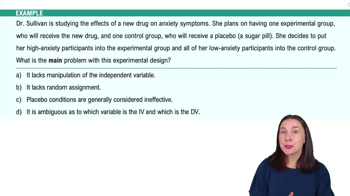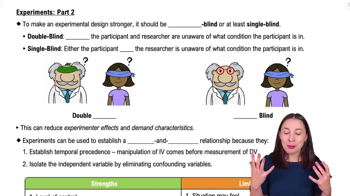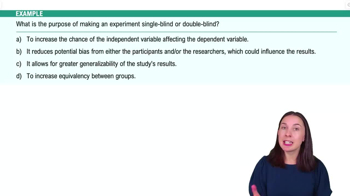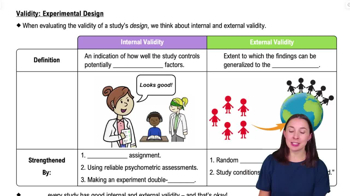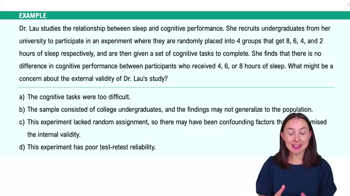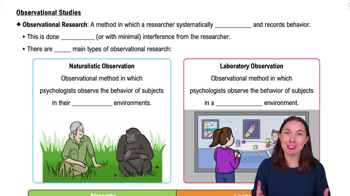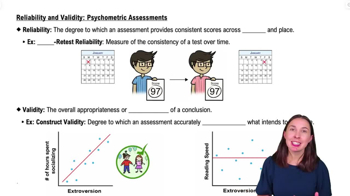Table of contents
- 1. Introduction to Psychology1h 43m
- 2. Psychology Research2h 20m
- 3. Biological Psychology2h 41m
- 4. Sensation and Perception28m
- 5. Consciousness and Sleep32m
- 6. Learning41m
- 7. Memory34m
- 8. Cognition37m
- 9. Emotion and Motivation35m
- 10. Developmental Psychology33m
- 11. Personality48m
- 12. Social Psychology41m
- 13. Stress and Health41m
- 14. Psychological Disorders44m
- 15. Treatment47m
2. Psychology Research
Intro to Research Methods
Struggling with Psychology?
Join thousands of students who trust us to help them ace their exams!Watch the first videoMultiple Choice
Albert Bandura defined _____ as a person's expectancy of how effective their efforts to accomplish a goal will be in any particular circumstance.
A
self-esteem
B
self-efficacy
C
locus of control
D
subjective expectancy
 Verified step by step guidance
Verified step by step guidance1
Identify the key terms in the problem: 'expectancy', 'effective efforts', and 'accomplish a goal'.
Understand that the problem is asking about a psychological concept related to a person's belief in their ability to succeed in specific situations.
Recall Albert Bandura's contributions to psychology, particularly his work on social cognitive theory.
Recognize that 'self-efficacy' is a term coined by Bandura, which refers to an individual's belief in their capacity to execute behaviors necessary to produce specific performance attainments.
Differentiate between the options: 'self-esteem' relates to one's overall sense of self-worth, 'locus of control' refers to the degree to which people believe they have control over the outcome of events, and 'subjective expectancy' is a broader term that can relate to various expectations, not specifically tied to Bandura's theory.

 1:46m
1:46mWatch next
Master Roadmap of the Lesson with a bite sized video explanation from Hannah Gordils
Start learningRelated Videos
Related Practice










